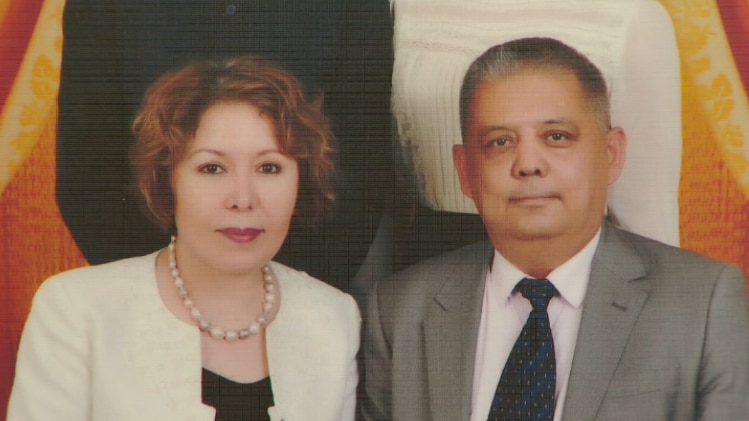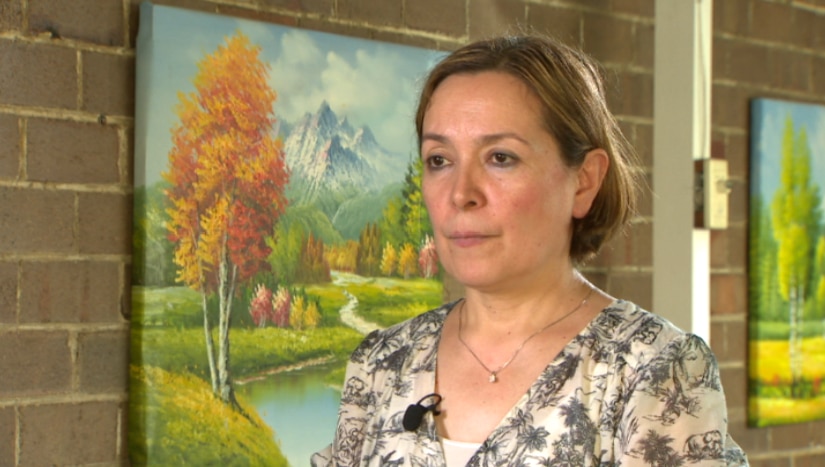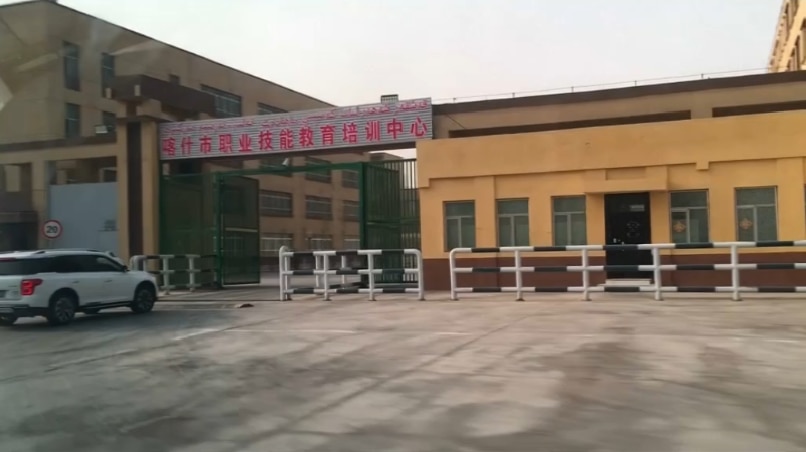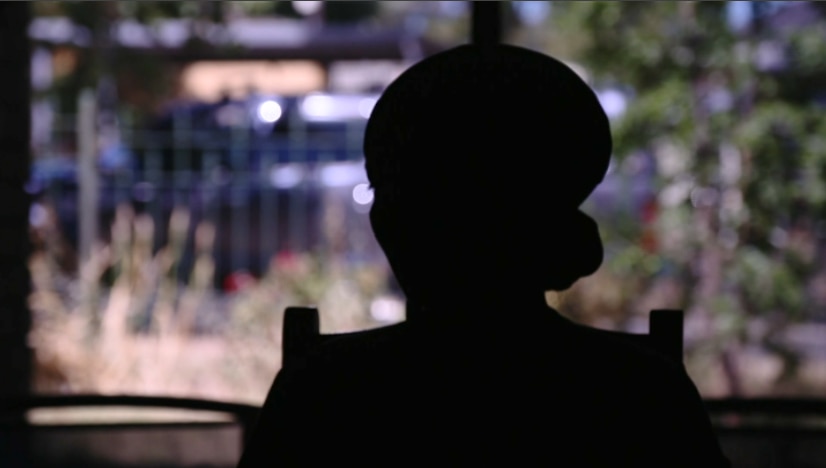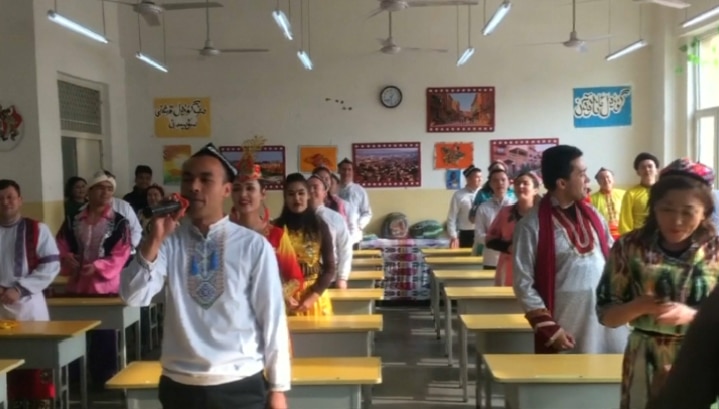Fears for Australian Uyghurs trapped in China’s ‘re-education camps’
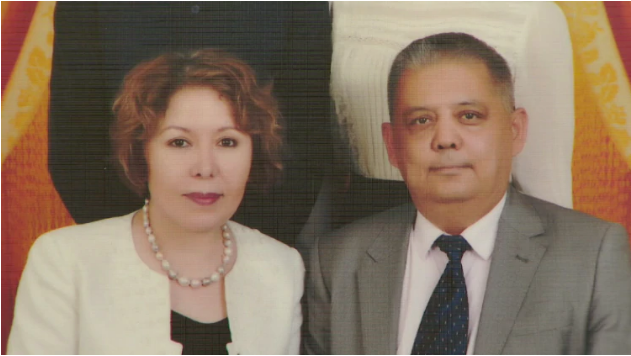
SBS News, 10 January 2019
 By Lin Evlin Zulfiye Hiwilla moved to Sydney from China 13 years ago.
By Lin Evlin Zulfiye Hiwilla moved to Sydney from China 13 years ago.
She now runs a small business in Sydney’s west and despite being thousands of kilometres from Xingjiang province, still fears the long arm of the Chinese state.
Her sister and brother-in-law, both permanent residents in Australia, lost their freedom when they travelled to China in 2017.“My sister and her husband [travelled] back to my country in February 2017. The Chinese government took her and her husband’s passports,” said Mrs Hiwilla, speaking publicly to SBS News for the first time.
She believes her brother-in-law may be in the controversial ‘re-education camps’ in Xinjiang province where the majority of Uighurs – a Muslim Turkic minority – are based.
“Their daughter and son are still in Australia,” she said. “They have been very angry, shocked, the kids cry and [are] very stressed.”
Authorities in Beijing call the camps “vocational education training centres” used to reduce extremism by teaching residents about the law and help them learn Mandarin.
In August the UN said it had received many credible reports that one million ethnic Uighurs in China were being held in what resembled a “massive internment camp that is shrouded in secrecy”.
When contacted by SBS News, a spokesperson from the Department of Foreign Affairs (DFAT) issued a statement saying: “Australia is unable to determine how many Uighurs detained in Xinjiang may hold Australian permanent resident status”.
But, China policy expert Michael Clarke, from the Australian National University, says the number could be in double figures.
“Unfortunately we don’t know exact numbers, however from my contacts with the Uighur community recently, I think there would be at least 10 cases, and if not more,” he said.
Senior diplomat Graham Fletcher, head of DFAT’s North Asia section, told a Senate Estimates Committee in October he was aware of at least three Uighur Australian citizens who were imprisoned in China, but said all had been released.
Australia is home to a tight-knit Uighur community with an estimated population of over 3,000 people.
Increased surveillance
One Adelaide-based Uighur, who wished to remain anonymous, told SBS News that Chinese authorities had contacted her via a video call on Christmas Day using her mother’s account on Chinese messaging app WeChat.
“I was excited and I can’t wait to see my mum after so many months of disconnections, then as soon as I connected [on the video call] the security officers appeared on the screen and they identified themselves as a security officer in Xinjiang,” she said.
“Then he showed my mother and sister-in-law were sitting in a police chair.
“My mother’s hands were handcuffed. Immediately after, he positioned the screen to himself and started to question me.”
The 37-year-old said she felt she had no choice but to comply with the demands of the officers and handed over details of her and her husband’s Australian driver’s licences and Medicare cards via WeChat.
She says she is reluctant to reveal her identity for fear of putting her family’s lives in danger. Her husband has applied for refugee status in Australia.
Such cases show an intensification of surveillance by Chinese security forces on Uighurs in Australia, says Nurmuhammad Majid from the East Turkestan Association Australia.
“In the past, our community had only heard of phone call and text message on WeChat from Chinese authorities,” he says.
“This is the first time we’ve heard of video calls in this way.”
Inside the ‘re-education camps’
Earlier this week, China allowed international media rare access inside the Xinjiang camps.
Residents were seen performing traditional dance, singing “if you’re happy and you know it” and studying in class.
When interviewed in the presence of Chinese government officials, 22-year-old resident Bilikiz said she came to the centre of her own accord.
“I applied to come here voluntarily,” she says.
“I listened many times to an illegal preacher speaking. Afterwards, some extremist thoughts appeared in my head which broke the law.”
It was a common response from Uighurs interviewed inside the camps.
https://www.sbs.com.au/news/fears-for-australian-uighurs-trapped-in-china-s-re-education-camps


